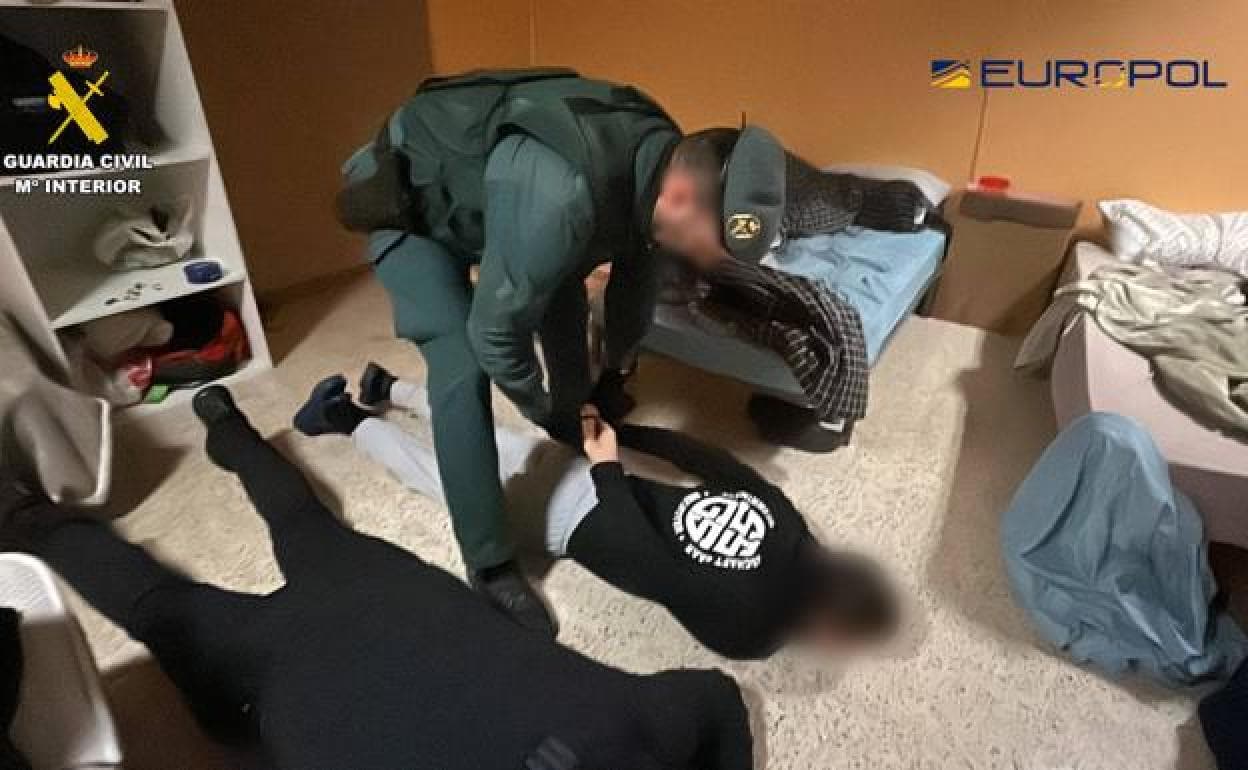Spanish police make 27 arrests and seize 3.5 million packets of contraband tobacco
Some leaders of the group allegedly laundered large sums of money, which allowed them to live a life of luxury on residential developments in Marbella
EUROPA PRESS
Tuesday, 24 January 2023, 10:07
Guardia Civil officers in Spain, with the collaboration of Europol, have smashed an alleged tobacco smuggling network in the country as part of Operation Fataca. Three tobacco factories have been dismantled, 27 people have been arrested and 3.5 million packets of tobacco - without a tax seal and valued at 17.5 million euros - and 10,000 kilos of tobacco leaves, with a value of more than 20 million euros, have been seized.
During the police operation, 24 raids and searches were made at homes, industrial units and shops in Seville, Malaga, Cordoba, Madrid, Albacete, Valencia, Zaragoza and La Rioja.
The operation began at the end of 2021, when a clandestine tobacco factory was dismantled inside a chicken shed in the town of Los Corrales (Seville).
As a result of this operation, the police detected another criminal organisation that moved large quantities of contraband tobacco, with a very high level of activity throughout Spain and in other neighbouring countries. For this reason, the Guardia Civil requested the collaboration of Europol to coordinate the operation.
Modus operandi
As investigations progressed, it became clear that the criminal organisation had two clearly differentiated 'modus operandi', which allowed its leaders to distribute and supply packets of tobacco without a tax seal around Spain and to other European countries.
On the one hand, they imported packets of cigarettes by container, via various national and even international seaports. These tobacco products were introduced without being declared to the customs authorities and therefore evaded the payment of the corresponding taxes (IIEE and IVA sales tax).
The second method, and main way, was the clandestine manufacture of cigarettes, with at least three factories in La Rioja, Valencia and Seville, which allowed the organisation to distribute packs of tobacco to all the provinces in Spain, and supply part of the production to other European countries.
Not allowed to leave
Investigators discovered the organisation used people of Ukrainian nationality to carry out the production work in the factories. They had either moved to Spain without paperwork in order or were under international protection due to the war in their country. They often were forced to work long hours and live in the facilities, crammed into prefabricated modules, and without being able to leave so as not to be detected.
The leaders of the group laundered large sums of money reportedly from smuggling tobacco, which would allow them to maintain a life of luxury, residing in Seville province and residential developments in the town of Marbella.
During the last stage of the operation, the investigators detected how the organisation was diversifying its criminal activity, expanding its facilities in large marijuana plantations.
Three clandestine factories
The three secret tobacco factories were located in the towns of Alfaro (La Rioja), Los Corrales (Seville) and Enquera (Valencia). The factories had machinery with advanced technology, with an estimated value of around 3,000,000 euros.
In addition, manufacturing machinery was seized in Estepa (Seville), with which the organisation planned to set up a fourth factory in Osuna (also Seville), to further increase production and therefore profits. With the three factories that the organisation operated, it could produce 540,000 packets a day.
Meanwhile, the money laundering investigation allowed for the seizure of seven properties and 25 vehicles, as well as the blocking of bank accounts owned by those investigated. The operation was carried out by the Economic Crime Team of the Guardia Civil in Seville and directed by a court in Osuna.
